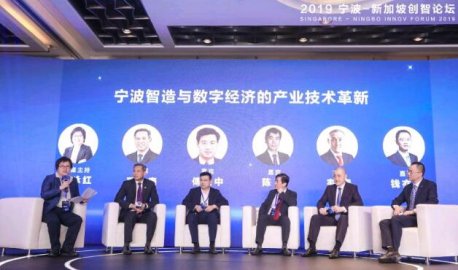Economic Daily News
After the anti -repair incident was extended for many months, September International Credit Evaluation Institutions and Moody's Fitch, Moody's successive protests destroying Hong Kong as the attraction of trade and financial centers, respectively.The listing of the letter of criticism as the negative, which means that it is worried about Hong Kong's follow -up development.
As we all know, as early as 1997, sovereignty was transferred to China, Hong Kong was an important transshipment station for the Western world and Asian trade, and drove the financial industry to flourish, ranking the leading financial center in Asia.With the improvement of the rule of law and the financial system in the UK, the long -term integration with global economic and trade, and the geographical advantages adjacent to China, Hong Kong has become a portal in the West to China and allows Hong Kong to maintain trade and financial centers.As China actively sought to join the World Trade Organization (WTO), on the one hand, Hong Kong was regarded by the Beijing authorities as a ready -made shortcut for domestic enterprises to go to the world.Autonomous, Hong Kong people governs Hong Kong, and the existing capitalist lifestyle has remained unchanged for 50 years.
As for Western society, the transfer of Hong Kong sovereignty is regarded as the introduction of the Western value system into China's flames. It is hoped that through the prosperity of capitalism, it will accelerate the open pace of China's economy and system.As a result, Hong Kong cleverly became the common hope of China and the West, and built a bridge between China and Western trade and finance, and even social values, so that Hong Kong entered an unprecedented prosperity period.
However, as China has jumped into the world's second largest economy, the freight throughput of Shanghai, Shenzhen, Ningbo, and Guangzhou has surpassed Hong Kong. The boom of these cities has also brought about accelerated development of the financial industry.In 2009, Chinese state -owned enterprises first publicly issued (IPO) in the Shanghai stock market officially exceeded Hong Kong with the US dollar.At the same time, under the advancement of the Belt and Road Strategy, the Beijing government has continuously strengthened the economic and trade connection with emerging market countries, and weakened its trade and financial dependence on the developed countries in the West.EssenceCoupled with the Chinese leaders ... After the stage came to power, the exacerbation of Beijing's arbitrary and special image has gradually caused Hong Kong's independent financial and operating status and the clever balance of the Chinese market to gradually crack.
Nowadays, US President Trump has launched a trade war in China, which has led to the decline in China's trade volume (including Hong Kong transit); anti -repair incidents have disrupted, causing Hong Kong to escape from Hong Kong.Let all circles feel uneasy about the future of Hong Kong.
Fortunately, even if Hong Kong's status has gradually weakened, it is still difficult for the Beijing authorities to find a comprehensive alternative in a short time.According to the principle of Impossible Trinity, policy goals such as stable exchange rates, free capital movement, and autonomy of monetary policy cannot be achieved at the same time, and only the three can choose two.In order to achieve the stability of the RMB exchange rate and maintaining the autonomy of monetary policy, China must implement capital control; while Hong Kong wants to keep the Hong Kong dollar's nail in the US dollar's exchange rate stability and the capital freedom emphasized by the financial center, it has to give up the autonomy of monetary policy.Therefore, in order to break through the limitation of the Sanyo Paradox, China must rely on Hong Kong to reach the existing exchange rate stability and autonomy of monetary policy, and use the hands of Hong Kong to open another door under capital control to allow funds to enter and exit China.
After all, from the information of the Hong Kong HKMA that two -thirds of direct investment and foreign direct investment, and most financial investment are conducted through Hong Kong.For example, after Hong Kong and China signed more close economic and trade relations arrangements (CEPA) in 2003, they continued to open up new funds to exchange channels in order to strengthen interconnection, including qualified foreign institutional investor plans (QFII), RMB qualified foreign institutional investor plan programs(RQFII), fund mutual recognition, Shanghai -Hong Kong Stock Connect, Shenzhen -Hong Kong Stock Connect, and Bond Connect.As of the end of 2018, the amount of foreign investment in Chinese A shares holding was about $ 172 billion, of which 58%were traded through the Shanghai (Shenzhen) Port Pipeline, and the total transaction volume of bonds has also exceeded 210 billionThe US dollar contributes 10%of the foreign capital to the Chinese bond market.
In other words, Shanghai (Shenzhen) Hong Kong Stock Connect, Bond Connect, QFII, and RQFII and other mechanisms together constitute an important way to open up the current Chinese capital market to the outside world.Therefore, as long as China still wants to maintain capital control, Hong Kong will still have an important way to enter and exit China in Hong Kong.However, at present, this role is gradually weakening.


